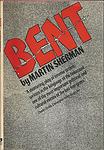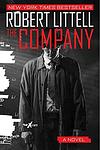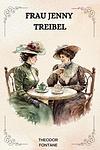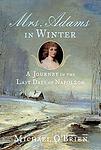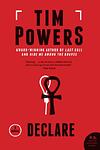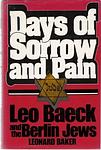The Greatest "Berlin" Books of All Time
Click to learn how this list is calculated.
This list represents a comprehensive and trusted collection of the greatest books. Developed through a specialized algorithm, it brings together 300 'best of' book lists to form a definitive guide to the world's most acclaimed books. For those interested in how these books are chosen, additional details can be found on the rankings page.
Genres
Countries
Date Range
Reading Statistics
Click the button below to see how many of these books you've read!
Download
If you're interested in downloading this list as a CSV file for use in a spreadsheet application, you can easily do so by clicking the button below. Please note that to ensure a manageable file size and faster download, the CSV will include details for only the first 500 books.
Download-
26. Berlin Game by Len Deighton
The novel revolves around a British intelligence officer stationed in Cold War-era Berlin, who is tasked with managing a critical network of spies and informants behind the Iron Curtain. When he receives alarming intelligence suggesting that there is a mole within his own department, he must navigate a treacherous landscape of deception and betrayal to uncover the traitor. As he delves deeper into the investigation, he finds himself entangled in a dangerous game of espionage, where trust is scarce and the stakes are life or death. The officer's personal and professional lives collide, forcing him to confront the harsh realities of his secretive world and the toll it takes on his relationships and his conscience.
-
27. Dada Documents And Manifestoes by Robert Motherwell
"Dada Documents and Manifestoes" is a compilation that offers a comprehensive insight into the Dada movement, a pivotal early 20th-century cultural phenomenon that challenged traditional art forms and cultural norms. The book brings together essential manifestoes, writings, and documents from various Dada artists and thinkers, providing readers with a vivid portrayal of the movement's radical ideas and experimental approaches. Through these texts, the collection not only explores Dada's artistic and literary innovations but also delves into its profound influence on modern art and its critique of contemporary society, politics, and culture.
-
28. March Violets by Philip Kerr
Set in 1936 Berlin, the narrative follows a hard-boiled private investigator navigating the treacherous terrain of Nazi Germany. Tasked with solving a high-profile case involving the theft of a diamond necklace and the murder of a wealthy industrialist's daughter and her husband, the detective delves into a world where political intrigue, corruption, and the rising tide of fascism intersect. As he uncovers more about the case, he finds himself entangled in the dangerous machinations of the Third Reich, revealing a sinister backdrop of power, betrayal, and moral ambiguity. This gripping tale masterfully combines historical detail with the classic elements of noir fiction, presenting a vivid portrayal of a society on the brink of moral collapse.
-
29. Die neuen Leiden des jungen W. by Ulrich Plenzdorf
This novel tells the story of a young man from East Germany who rebels against the societal norms and expectations of his time. The protagonist, a skilled worker, flees from his apprenticeship and his home to Berlin, where he isolates himself in a summer house, devoting his time to his passions of reading and listening to Western music. Using the narrative style of a psychological confession, the book explores themes of youthful rebellion, the search for identity, and the conflict between individual desires and societal pressures. The protagonist's tragic end underlines the oppressive nature of the East German regime.
-
30. Bent by Martin Sherman
The play is a harrowing and emotional journey through the persecution of homosexuals during the Nazi regime, focusing on the story of a gay man in 1930s Berlin who is sent to a concentration camp. His struggle for survival becomes both a testament to the human spirit and a poignant commentary on the horrors of the Holocaust, as well as the additional suffering faced by those targeted for their sexuality. Through his relationships and experiences in the camp, the protagonist grapples with identity, love, and the meaning of humanity in the face of overwhelming brutality and oppression.
-
31. The Company by Robert Littell
This espionage novel delves into the intricate and shadowy world of the CIA, spanning from the early days of the Cold War in the late 1940s through to the collapse of the Soviet Union in 1991. Through the eyes of both fictional and historical figures, the narrative weaves a complex tapestry of loyalty, betrayal, and the moral ambiguities of intelligence work. The story follows the lives, careers, and personal sacrifices of CIA operatives as they engage in covert operations, counterintelligence, and the struggle against the KGB. The novel offers a gripping and detailed exploration of the global chess game between the United States and the Soviet Union, highlighting the personal and political costs of espionage.
-
32. Jenny Treibel by Theodor Fontane
The novel is a satirical portrayal of the German bourgeoisie in the late 19th century, focusing on the life of Jenny Treibel, a wealthy manufacturer's wife who prides herself on her refined bourgeois values, despite her humble origins. The story primarily revolves around the romantic aspirations and ideological conflicts between Jenny's son Leopold and Corinna, a young, idealistic woman of lower social standing who is more interested in intellectual pursuits than material wealth. The narrative delves into themes of social mobility, hypocrisy, and the clash between materialism and intellectualism, highlighting the pretensions and moral ambiguities of the middle class during that era.
-
33. Stasiland by Anna Funder
This non-fiction work delves into the haunting legacy of the Stasi, the secret police of the former East Germany, through a series of personal narratives and interviews. The author explores the pervasive surveillance and oppression that characterized the German Democratic Republic, weaving together the stories of those who resisted the regime, those who worked for it, and those who were its victims. The book serves as a poignant examination of the human spirit under the strain of totalitarianism, revealing the scars left by a society where privacy was eradicated and trust was a commodity few could afford.
-
34. The Collini Case by Ferdinand Von Schirach
This gripping legal thriller delves into the complexities of the German legal system through the lens of a seemingly inexplicable murder case. When an elderly industrialist is found brutally murdered, the suspect, an Italian man with no apparent motive, confesses to the crime, sparking a sensational trial. The young defense attorney assigned to the case finds himself embroiled in a deep-seated legal conundrum that challenges his beliefs about justice and morality. As he delves deeper, he uncovers a dark chapter of German history that reveals the true motive behind the murder, forcing him to confront uncomfortable truths about the past and its impact on the present. This novel is a compelling exploration of guilt, redemption, and the quest for justice in the shadow of historical atrocities.
-
35. Mrs. Adams In Winter by Michael O'Brien
"Mrs. Adams in Winter" is a captivating historical narrative that follows Louisa Catherine Adams, the wife of John Quincy Adams, on her perilous winter journey across Europe in 1815. Amidst the tumultuous backdrop of the Napoleonic Wars, Louisa travels from Russia to France to reunite with her husband in Paris. The book not only details the physical hardships of her journey through a war-torn continent but also delves into her personal struggles and reflections. Through this intimate portrayal, the book offers a unique lens on the political and social upheavals of early 19th-century Europe, while highlighting the resilience and complexity of its central figure.
-
36. Parallel Stories by Péter Nádas
This novel is a vast and intricate narrative that weaves together the lives of characters across different generations and locations, primarily in Hungary and Germany, spanning from the 1930s to the 1980s. Through a series of interconnected stories, the book explores themes of identity, history, sexuality, and politics, delving deep into the personal and collective experiences of its characters. The narrative structure is complex, with a rich tapestry of details and a deep psychological insight into human nature, reflecting on the impact of historical events on individual lives and the interconnectedness of human experiences across time and space.
-
37. Declare by Tim Powers
In this supernatural espionage thriller, a British intelligence agent uncovers a secret history of paranormal forces and Cold War intrigue. The protagonist is drawn into a world where mythical creatures and occult rituals are entwined with real historical events, particularly those involving the Soviet Union. As he navigates a shadowy battlefield that spans from the ruins of post-war Europe to the deserts of the Middle East, he must confront a demonic entity and unravel a conspiracy that challenges his understanding of reality, all while grappling with personal demons and a complex love interest. The novel blends historical fact with dark fantasy, creating a unique tapestry of suspense and supernatural warfare.
-
38. Berlin: The Downfall, 1945 by Antony Beevor
The book provides a detailed account of the final months of World War II, focusing on the Battle of Berlin. It chronicles the brutal and chaotic fall of Berlin, the capital of the Third Reich, to the Soviet Red Army in 1945. The narrative presents a grim picture of the atrocities committed by both the German and Soviet forces, the mass suicides by the German populace, and the horrific conditions of the city during the siege. It also explores the political maneuvers behind the scenes, offering insights into the decisions and actions of key figures like Hitler, Stalin, and Churchill.
-
39. Days of Sorrow and Pain: Leo Baeck and the Berlin Jews by Leonard Baker
This book offers an in-depth account of Leo Baeck, a prominent Rabbi who served as a spiritual leader for the Jewish community in Berlin during the rise of Nazism. The narrative explores Baeck's efforts to maintain the dignity and faith of his community amidst the horrors of the Holocaust, his eventual internment in a concentration camp, and his post-war role as a representative for the survivors of the Holocaust. The book provides a poignant reflection on a dark period in history, highlighting the resilience of the human spirit in the face of extreme adversity.
Reading Statistics
Click the button below to see how many of these books you've read!
Download
If you're interested in downloading this list as a CSV file for use in a spreadsheet application, you can easily do so by clicking the button below. Please note that to ensure a manageable file size and faster download, the CSV will include details for only the first 500 books.
Download



